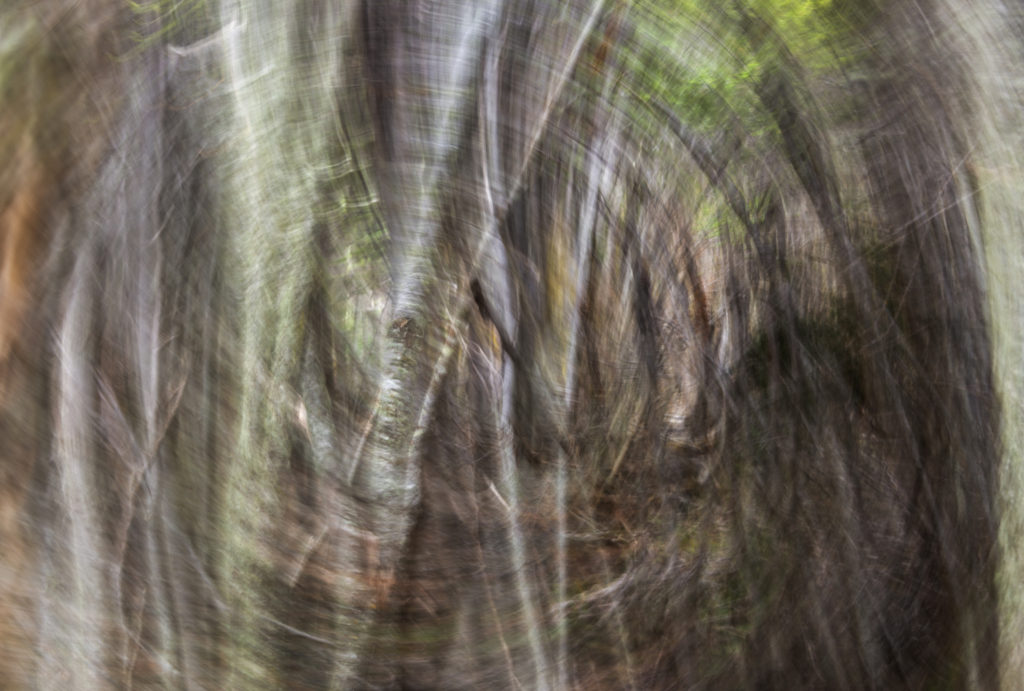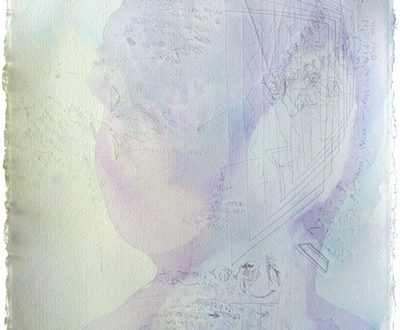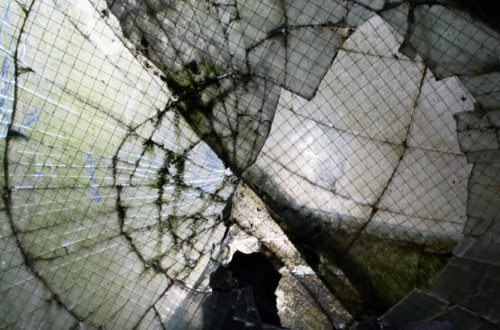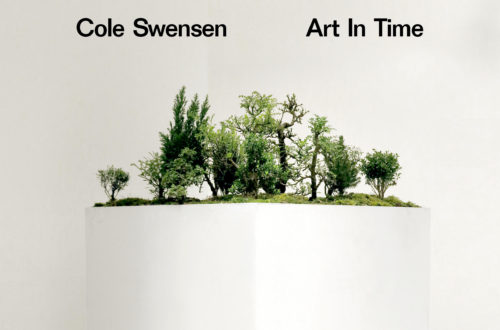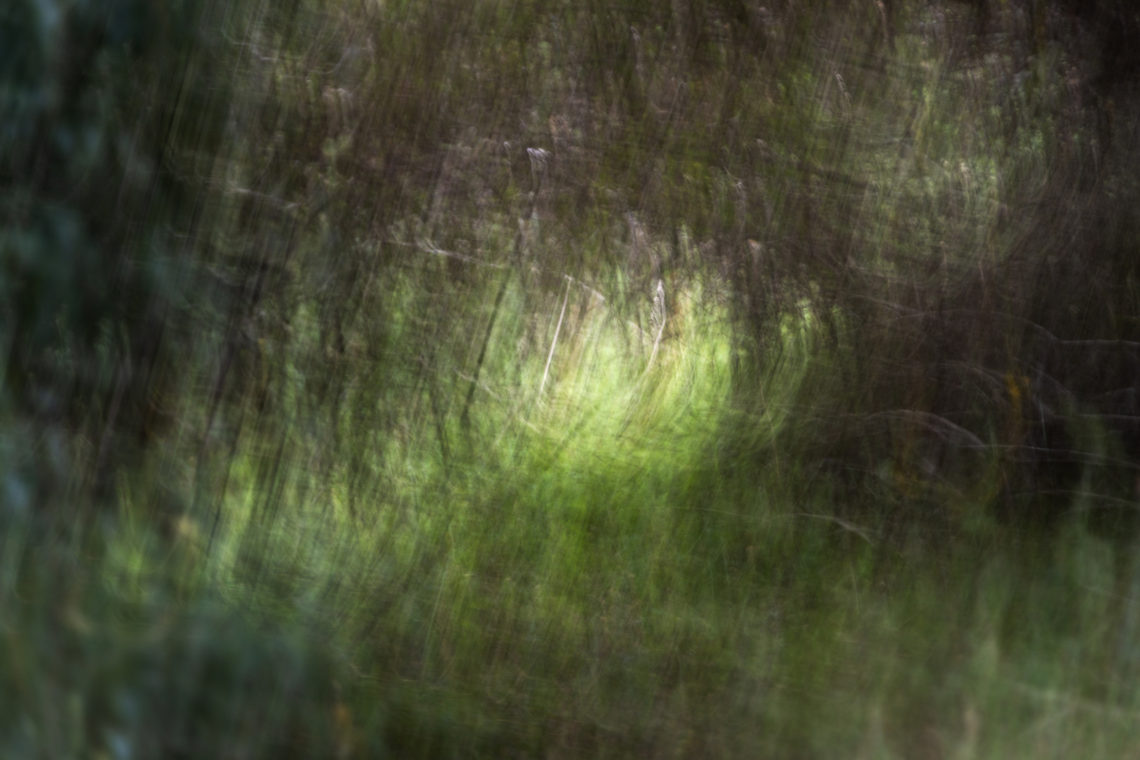
film room 208, avenue of the poet rilke by Christian Formoso (translated from the Chilean Spanish by Sydney Tammarine and Terry Hermsen) Photography by Michael Angelo Yáñez
film room 208, avenue of the poet rilke
1
fade to black and two cut-off images: a woman in front of a window—the gesture of gathering her hair from her face—and a smudged name like graffiti scrawled on the bridge at ronda. someone who looks like you across from the woman. a blink. the end of the gesture and the movement already washed-out and no longer there.
2
you refuse to speak, thinking of the tree on a small hill. you want to see it in the scene and so it appears. the woman disappears and you are inside of your tree. you open your eyes. remember. you had closed them to blink and you open them. and in that fraction of a second you’ve gone from its roots to its branches and you have returned with nothing in your hands. quite quickly it all becomes habitual. you blink and a voice that seems to be yours asks who is this woman. you open your mouth and up come letters, hazy over the obscure depths. music of guitars to exit the scene. in the sky there is one star dressed like a woman and the star that lou maría salomé gave you against a stone wall. despite their fire they seem to you frozen. you were not distracted that time, you just didn’t know what to pay attention to. her eyes suddenly were more intense than what you called your grandest, strangest thoughts. and up come the last words over the obscure depths. speaking to yourself you say something to her in front of the window. you turn your head on the pillow. you see her with you, dressed as a girl, naked.
3
fading to black. a trickle like white sand falling to one side and a spoon of tremendous proportions that now stirs circles to the center of this darkness. you leave the cup of coffee. you bump into a face and in your dream that face leaves with her by the hand. you drink from the cup. she looks through the window. you turn on your right side, intending to stay asleep.
4
you know that to approach you, this image must be reflected in your mirror first. its form in words is impossible. your hand as well. and the stone and the image of the stone glimmering in the mirror. you hold your breath and the image returns bit by bit, beat by beat. in a coffin there is a bunch of rusted nails. you fade in front of the mirror before opening the lid. you grow thin inside before gathering form. first of desire. later the form of the stone. but you are not the stone, although you feel a current pulling you on. that you hit the head of an old rusted nail. lights of airplanes in the nocturnal sky of your mind. these also disintegrate in front of the mirror. there is an open coffin in an old shed. it requires two journeys to take the nail and the stone and place them over the slab. you take the stone and the batch of rusted nails. the vertical nail, the horizontal wood. the stone higher than your head descending to strike the head of the nail. the pillow and her hair at your right. your loose syllables approach and slip away from her ear. you say enough and the sequence cuts short. you want the stone, the nail, the wood and the sting of this lost fissure to leave the scene. you discard them. you listen to the strike of the stone on the nail and the wood. you suddenly remember the same feeling from the first night you came to ronda and saw the cliff and the bridge that joins both sides of town. you thought it is the cliff between words. you wanted to climb down it and there was no light. you waited for the following morning. now it is dark and you can descend.
5
you don’t know how to steer, nor the course nor the current of the current of all you have lost. instead you feel she watches you from the depths of a river, although you can scarcely make out what is below the water. now, against the glare of the window, this sister posed within the vacancy of the depths of the scene appears ready to respond. you set down your cup of coffee. you see her back half-shadowed and the door of the bath. you lower your head. you turn over on the bed and say enough. you watch her eyes. she returns from the bath and her foot reaches out to graze yours, but pulls back.
6
names of flowers on posters on the walls. names and surnames in black over the marred white surfaces. you approach a window. see the discolored photograph of a man smiling. you read his name and the phrase on the t-shirt stamped on his chest: follow me.
7
you should have asked instead the stones and not the trees when spring is. you realize they don’t speak the same tongue. nor do they follow the grand migrations. nor bunch up in tired packs. theirs is not a single note but a fugue. and their careless array is in fact a white page from a little musical score. all at once you blossom and wither. it happens without you realizing. something approaches from this little sonata on the paper. someone has seen the sketch of a pentagram. the opening phrase, the signature for the rhythm. the repeat sign and the sign to return. the sound of guitars. this someone who seems to be you now resolves to remain asleep. and he does. or seems to.
8
you enter and sit in front of a curtain. the curtain does not open but you see on the stage an immense plain and something that is not an ending but rather the opening credits for an old horror movie. a doe appears in the middle of the scene and projects it all from her eyes. you think that if you leave this seat you will never see again. you see yourself in the bathroom after shaving, backing away from the mirror. you return to the scene and the deer now is a doll, dressed in your clothes. its legs take over your legs. you move its mouth and you speak. the light shrinks from the scene. you hear yourself say, enough. you watch the crowd behind the curtain. a woman watches you face on. you watch the scene. you have a sense that behind the curtains you will see a city in white. and you see all of it far away through eyes not your own. you feel as if they’ve gotten you out of bed in the cold. that they’ve brushed you out. that they’ve left you in front of the mirror, ready for the blow. they carry you out to a yard. you see the deer. remain across from yourself on the stage. the scene fast forwards. your doll dressed like a deer says that he is here. ladies and gentlemen. says the circus of me. with a voice like a train whistle announcing a sideshow of animals, crippled women, lovers and songs of celebration. you see a bare foot rise and an angel stands up. at one point you feel as if the whole scene is splintering into holes. you see the dying. the voice of the train whistle speaks slowly, dragging its syllables: I don’t know if it’s cold. put on your cap. give me that stone. the scene goes dark. you are alone and the pampas and the forest open before you at the edges of the bed. you look at everything and realize that quite literally you are growing. you see yourself small, and crumpled, with a tie, hopping first on one foot, then the other. crossing the street on the arm of your mother. the scene fades to black. you reach out to stretch your hand. take the doll out of the scene and smash it to pieces. wanting to see what it has inside. how it works.
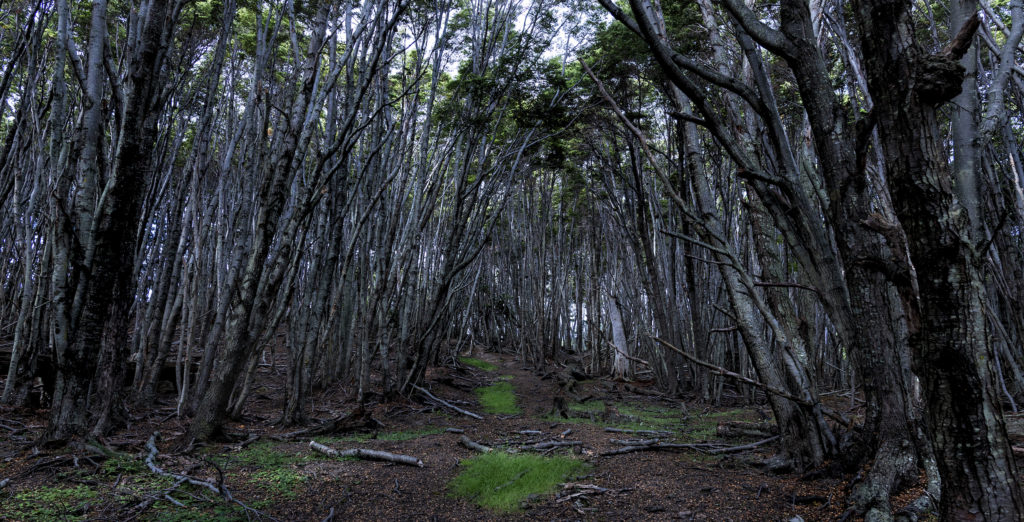
9
you ask yourself what’s the question worth for those who rise and fall through the scenes. you don’t know if they are more fleeting than your thoughts or if they’ve been trying out different sketches of themselvessince birth. you know, however, that your role will be devoured. who loved them? for the love of whom do you see them pass? rarely do they encounter anything more than some reversed chessboard that keeps returning and a hand pointing at a piece that never moves. it seems they know their names when they choose them. or else they interchange at random even though they never appear in any scene and only vanish between acts. someone in the scene reads a page from a newspaper. an old man plays a drum, weakly keeping the rhythm. there are old berries at each of their feet. they look down and pick them from time to time. a mirror from below reflects their image. they look threatening to themselves. they are two faces. one mask facing another. exactly the same. before the scene fades to black you reach out to see one hand picking up a stone. the stone and an angel sinking in the water. a single circle on the water.
10
intense light until it fills the image of a plaza at the center of the white city. and in the middle of her the doe and you. and a hand beating in place of a heart. you listen to a prayer and herbody that is already inside of yours.
11
your tree from the hill now at ground level. you ask yourself why its fruit is so black and its seed an offspring so spiteful, although its branches move only with the memory of the wind. the scene pulls you back. a head smashes against the wounded, weeping fold within the tree. and your eyes rise not to eyes but rather the worn-out reflection of your closed eyelids. quiet on the set. the old one and the other watch and open their mouths as if to greet you but you hear nothing. the scene opens again without raising its curtain and reveals you like an old faded lightning bolt, resigned to return and shine. you think you will never let yourself escape this old revolving chessboard. you recognize your hand moving a piece. you turn a card. and you see that all bets are on. you’ve lost your touch. your blood beats full of memories. without them you could not get up in the morning although in truth you’d advise against it: the nature of it all is perverted. like the beating of a bird’s heart while inside the shell before it has begun to beat. you don’t want to see what’s coming. but it’s possible that even in saying so you could miss it. it will be, undoubtedly,a lost bet. it will wind its way between all of you first, this that you call interrogative gibberish. but later it will retreat below the tree, not some new day but rather a worn one,unable to stand. you try to give a little order to your thoughts: no more steps but rather a ramp. and later a well or a marsh. and much later, the quicksand of an old horror movie. behind, summer. in front, another season. no night, no day, no evening: some light you’ve never seen becomes the scene. at one side, the saintly virgin surrounded with candles. and the sparkle of lights extinguishing. the phosphorescence when consumed consumes the hand and the images that behind your eyes set fire. you see no fruit at all. only the muffled charcoal as this game goes on: the resurgent board and your hand pointing to your arm, your head, your other hand that is not a hand at all.
12
you think this much is certain. it’s not just about the next dream nor the foreboding dusk, but rather about the night. you feel the beating of the last word more than the last beating of the heart. but you don’t listen for the beating of the heart. you call to the doe along the border of your bed. you see the beautiful dead leaving their tombs, coming to your call. and you hear immeasurable dead speaking when you speak to them. the scene now is full of children. such certainty in their ears and in the beating of their little open chests. you say that fate contains no more than the capacity of infancy. but you think of your own foreboding as a child before her image. and within hers the image of you. they did not know what to do with those little bodies and nevertheless they now remember a horse that they drew running through the trees. and the toys that they made of you and her with hard plastic mouths chattering: this is me, this is her. this is him, this is me. sketches and words, dolls moving through the obscurity of the houses in midday. and scenes of movies and songs. and the heart of the future. after the songs, the urge, after the last memory, you put one foot into the street and noticed it immediately. there is no place but inside the foreboding. it grows within and you diminish toward insignificance. you appear disfigured, your dust will not continue beating beyond the lines of your heavy conscience. and a demolished house and its mental picture, they are like exposed bones, fractures, dimensions that at the same time contain the house and your thoughts and your worries. you think that the waste of the heart is hidden in secret, no matter if what is saved goes into an account without funds. you see the lost balance of all those savings although the shaking of your conscience stills. the eyes of the doe in this place where you arrive make you enter into your own. you recall the foreboding of the toys: you and she were dolls embracing awkwardly. and the trembling of the little bodies. all the games below the table and the trembling look confronting her foreboding. you almost came to understand the bleached out workings of the place. you are sitting with your face in your hands. and beyond your face and your hands you hold in your hands her image in the window. you call her again. you ask if she is there. you don’t know if it’s she who responds.
13
you remember the look of that boy as your own because you have approached your face in the mirror. or simply because you have emptied your eye sockets and filled them with this vacant reflection you see in the animals. you are facing this old foreboding. you have seen the deer in its stillness, its muscles tense, sensing the raised snout, the trembling rumor of a leaf that anticipates some other certainty. advancing and receding and in other directions intent on fleeing the road of god. premature joy, joys spread between pathways and pastures, eternal in its instant of foliage, and perishable although no more than any other, in the endless repetitions. the fountains of the deer fill with other movements. no pure rustles across their simple square. the tremor stalks them. and neither is your space free from the trembling that separates your foreboding from those tense muscles, although you might think that your words form a border. you bring together both sides of your singular secret. because the boy was lost from the hand of his mother like a piece of this wasted game. far older is the reason for these little chests opening. the foreboding came before it. and it’s real, the trembling that tenses the muscles, that divines death after its own words. the red of the sun postpones that infinite pleasure. and in that space, you and she are free from the tremors of the road. the pure conscience of the animals does not suit you. nor does it make them capable of imagining the brevity of their demise. your own perception comes back to you trembling but the animal senses the future in the momentary tremor of the leaves. and that which is sensed is sensed being lost forever. they combineyou and he and you and she in memory. the memory of another leaf trembling and the reflection of flight and the new one standing there. breath and distance are momentary spaces that turn in the rapid patter of the dolls, in the heaving resistance of the curtain closing in a scribbled sheet. breath and distance are the cord that separates them. the cord that slices and now you want to find a strange dryness emerging inside you. you stop running. the first of your perplexities vanishes. the curtain lowers. the stage senses you. the movie begins.
14
you move in quickly after spinning around. the windows have closed and the curtain is about to rise. the stage begins to dissolve its old scenery behind the fabric. you look around and recognize nothing missing and nothing there. only an instant of repetition. you try to make it all repeat again—it’s a beautiful chaos—although you only catch fragments of denial. although now you see the sharp thrust inside the berries as they open, the rhythm of the sun in its bleeding, the swift passage of the clouds inside you. you want to keep hold of this harmony. you do not want to relive a womb that repeats you, although you make a move now to pull it all under the table. from there you can see all that you see. the room disappears. and your sight now, yes, as well. in this dark zone you look ahead. this radiance is the unhappy distance you forget as the moment flares. the closest star beneath the mountain. you prefer the image of the closed curtain. and its foreboding. to see it all spread behind the curtain. and to throw yourself at a summer, totally disappeared. your heart persists. the hammering will not sleep and the song will not ignite. in exchange the ineffable world breathes through the eyes of your own presence. a groan brings up marked cards. their dealer is in earnest. you don’t have to show the room. nor the passion of a boat anchored in its seed. nor the turn that takes it from its wave to your eyes. nor that your eyes shipwreck. from this transformation of your eyes the boats arrive in light. whoever you and she might be, this boat swirls in its hollow basins. she comes with her muddled blood and her skin before you. and only a single syllable. her name and yours resound. and the old man and the wounded boy, that in the end you understand are you, laugh because they know they have been born many times, each night, over and over.
15
you will never leave this vision nor will there be singing or angels, only a discolored photograph with your name scrawled across it. the letters blurred. lit from below and your face distorted. you have slept on both sides of this image, and now have turned stale. now you will learn to sleep without thinking of anything. you lean down your head. hear the applause ending and a pulpit shutting down. the curtain is closed. you can see nothing but you know there will be a wedding in this film of terror. quickly the curtain rises. you will see her. you blink. believe that you hear the costumes of sex and the dream. you gather up the sheets of fantasy. to remember her body, to cure your insomnia and to not let the speech end. now you and she are fantasies in the film of terror. a pair of elegant images. two children play. they are taken off, first one and then the other. separated so severely, in the poor prairie. you see the sad sheets of your missingbody and begin to imagine the end of the film. at some point in the plot you come to a realization. a foreboding and a vision. you had hoped for a house vacant of apparitions. now at the end you can see. over the bed you say enough. women, the dead, children, deer heading out to be lost in the forest. the film of terror is ending. the deer trot over the green paragraphs. the forest has come to life. you see an image of a rock breaking your mirror and the hollow of some uprooted eyes. she opens her hand. you emerge from this palm. you see now the vast steepness. bridges cut between words—that only the dead can cross—. the animals heading out now in this first premonition. and after that, the prairie. you see a rock in the middle of the prairie. and just as quickly a light of the city in the distance of the southern sky. there at the window, suddenly, she releases her hair. and the night falls without end.
16
you don’t blink. the scene deliberately dispels itself. she recedes in fast forward. later in slow motion. and the whole scenario comes across as your memory. you say the dead must be coming. the deer says do you see it now? it’s the vision of her which you cannot leave. you take her hand smiling and the curtain begins to rise. you start to hear the question that you dressed in the disguise of a girl and the thoughts that sprout up in unison: we were almost happy for a time. you want to add something and can’t remember what. they tied a handkerchief around your jaws trying to close you up. you listen for the music of guitars. a name begins to rise over the scene and more letters, and now clear notes over the obscure depths. you pronounce her name. you see the lights of planes in the night sky of your head, and a beautiful star dressed as a woman. you are about to wave at a plane but she pulls you by the hand. you step out of the tree and turn and go back in.
*** *** *** *** ***
película habitación 208 avenida del poeta rilke
1
fundido en negro y dos imágenes cortadas: una mujer frente a una ventana –el gesto de recogerse el pelo– y un nombre borroso como un grafitti en el puente sobre el tajo de ronda. alguien parecido a ti tras la mujer. un parpadeo. la conclusión de un gesto y un movimiento deslavado y ausente.
2
te contienes de hablar pensando en el árbol de una loma. quieres verlo ahora en escena y allí lo pones. la mujer desaparecey estás dentro de tu árbol. abres los ojos. recuerdas. los habías cerrado al parpadear y los abres. y en esa fracción de segundo has ido de la raíz a la rama y has vuelto sin nada entre las manos. en poco tiempo se ha tornado costumbre. parpadeas y una voz que parece tuya pregunta quién es la mujer. abres la boca y suben letras borrosas sobre el fondo oscuro. música de guitarras para salir de escena. en el cielo hay una estrella vestida de mujer y la estrella que lou maría salomé te dio contra una pared de piedra. a pesar de su fuego te parecen congeladas. no estabas distraído esa vez, sólo que no sabías a qué poner atención. sus ojos de improviso eran más fuertes que la llamada de aquello que llamabas los grandes pensamientos extraños. suben las últimas palabras sobre el fondo oscuro. le dices algo para ti frente a la ventana. giras la cabeza sobre la almohada. la ves junto a ti, vestida de niña, desnuda.
3
fundido en negro. un hilillo como de arena blanca cayendo por un costado y una cuchara de dimensiones extraordinarias que ahora da vueltas en el centro de esa oscuridad. sales de la taza de café. te topas con un rostro y en tu sueño ese rostro va con ella de la mano. bebes de la taza. ella mira la ventana. giras sobre tu lado derecho e intentas quedarte dormido.
4
sabes que al acercarte, esa imagen se ha reflejado en tu espejo ahora. su forma de palabra es imposible. también tu mano.y la piedra y la imagen de la piedra al estrellarse en el espejo. contienes tu respiración y esa imagen se renueva pausa a pausa, entre latido y latido. en un cajón hay un manojo de clavos oxidados. te desvaneces frente al espejo antes de abrir el cajón. te adelgazas por dentro hasta tomar consistencia. primero de deseo. luego forma de piedra. pero no eres la piedra, aunque sientas que una corriente te arrastra. que golpeas la cabeza de un viejo clavo oxidado. luces de aviones en el cielo nocturno de tu cabeza. también se desintegran frente al espejo. hay un cajón abierto en un viejo galpón. el recorrido esdoble al tomar el clavo y la piedra y ponerlos sobre una tabla. tomas la piedra y el manojo de clavos oxidados. el clavo vertical, la madera horizontal. la piedra más arriba de tu cabeza bajando a la cabeza del clavo. la almohada y el pelo de ella a tu derecha. tus sílabas sueltas acercándose y alejándose de su oído. dices basta y la secuencia se corta. quieres que la piedra, el clavo, la madera y el piquete de esa hendidura perdida salgan de escena. los sacas. escuchas golpes de piedra en el clavo y la madera. te das cuenta, recuerdas lo mismo que sentiste la noche que llegaste a ronda y viste el tajo y elpuente que une ambos lados del pueblo. pensaste es el tajo entre las palabras. quisiste bajarlo y no había luz. lo hiciste a la mañana siguiente. ahora está oscuro y puedes bajar.
5
no sabes dar rienda ni curso ni corriente a la corriente en que te has perdido. sientes en cambio que ella te mira desde el fondo de un río, aunque apenas vislumbres qué hay bajo el agua. ahora, contra la luz de la ventana, hermana en su actitud con el vacío del fondo de la escena, se ve dispuesta a responder. bajas la taza de café. ves su espalda en penumbras y la puerta del baño. bajas la cabeza. te das vuelta sobre la cama y dices basta. la miras a los ojos. vuelve del baño y su pie alcanza a rozar el tuyo, pero lo saca.
6
nombres de flores en los letreros. nombres y apellidos en negro sobre el desliz blanco. te acercas a una ventana. ves la foto descolorida de un hombre sonriendo. lees su nombre y la frase en la camiseta estampada en el pecho: follow me.
7
en su lugar debieras preguntar a las piedras y no a los árboles cuándo es primavera. te das cuenta que no van al unísono. ni siguen grandes migraciones. ni hacen su jauría reconocible. no es una sola nota sino una fuga. y el tratado indiferente es en verdad la hoja blanca de una pequeña partitura. a un tiempo floreces y te secas. sucede aunque no te des cuenta. algo vamás cerca de esa pequeña sonata en el papel. alguien ha visto el croquis de un pentagrama. la fracción al comienzo. la barra de compás. la barra de repetición y el rayado para volver. música de guitarras. ese alguien parece que eres tú ahora queintentas quedarte dormido. lo consigue. parece.
8
entras y te sientas frente a un telón. el telón no se abre pero ves en el escenario una inmensa llanura y algo que no es una despedida sino los créditos iniciales de una vieja película de terror. aparece una cierva en medio de la escena y proyecta todo con sus ojos. piensas que si sales de ese asiento dejas de ver. te ves en el baño después de afeitarte, alejándote del espejo. vuelves la vista y la cierva ahora es un muñeco vestido de ti. la tienes sobre tus piernas. mueves su boca y hablas tú. se apaga la luz de la escena. escuchas que dices basta. miras al público tras el telón. una mujer te mira de frente. miras el escenario. presientes que tras las cortinas verás una ciudad blanca. y ves aquello a través de otros ojos. sientes que te bajan de la cama en el frío. que te peinan. que te dejan frente al espejo, listo para el soplo. te llevan a un patio. ves a la cierva. quedas tras de ti sobre el escenario. la escena corre en cámara rápida. tu muñeco vestido de ciervo dice que él está ahí. damas y caballeros. dice circo de mí. con voz de pito de tren agrega espectáculo separado de animales, de mujeres doloridas y de amantes y canciones para celebrar. ves que un pie desnudo se levanta y que un ángel se levanta. a un tiempo sientes que la escena cae en picada. ves moribundos. la voz de pito de tren dice lentamente arrastrando las sílabas: no sé si hace frío. ponte un gorro. dame esa piedra. la escena se oscurece. estás solo y una pampa y un bosque se abren al borde de la cama. miras todo y sientes literalmente que estás creciendo. te ves pequeño, arrugado, con corbata, saltando en un pie, luego en el otro. cruzando la calle del brazo de tu madre. la escena se funde en negro. alcanzas a estirar la mano. tomas el muñeco del escenario y lo rompes. quieres ver qué tiene dentro. cómo funciona.
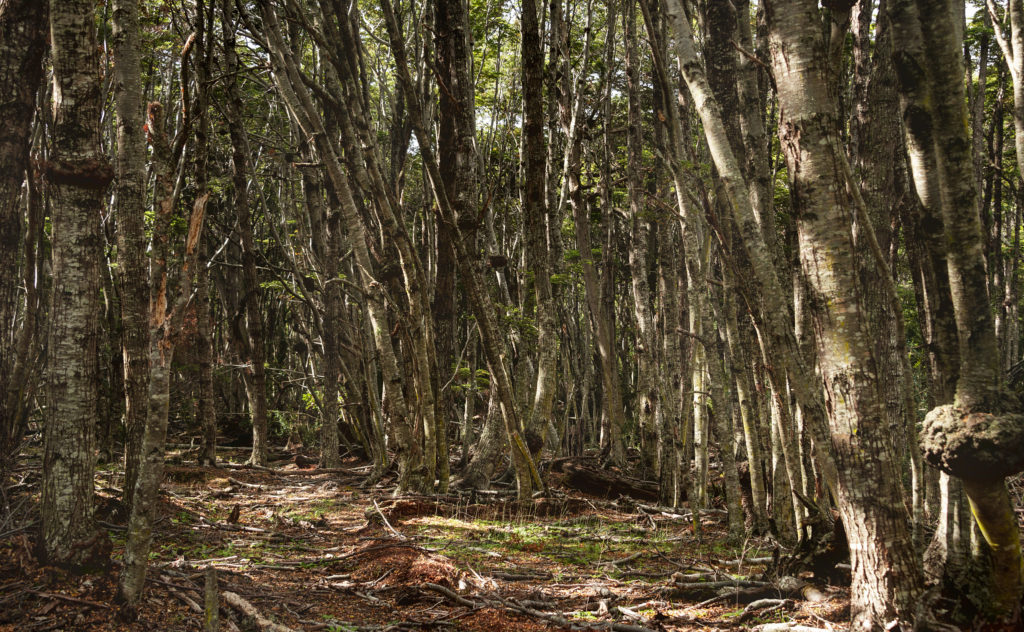
9
te preguntas qué valor tiene la pregunta por los que suben y bajan de escena. no sabes si son más fugaces que tupensamiento o traen otro boceto desde que nacen. sabes, en cambio, que su papel será devorado. quién los amó? por amor a quién los ves pasar? rara vez encuentran algo más que un tablero vuelto y una mano señalando la pieza sin movimiento. parece que saben sus nombres cuando las toman. o se transforman al azar aunque no bajen ni suban de ningún escenario y sólo desaparezcan entre acto y acto. alguien lee una página de diario en escena. un viejo toca un tambor débilmente marcando el ritmo. hay viejas bayas a los pies de ambos. las miran y las recogen sólo de cuando en cuando. un espejo al fondo les devuelve la imagen. se miran amenazantes. son dos rostros. una máscara frente a otra. una sola. antes que la escena se funda en negro alcanzas a ver una mano cogiendo una piedra. la piedra y un ángel hundiéndose en el agua. y un solo círculo en el agua.
10
luz intensa hasta calzar la imagen de una plaza al centro de la ciudad blanca. y en medio de ella la cierva y tú. y una mano latiendo en lugar de un corazón. escuchas un rezo y su cuerpo ya está dentro del tuyo.
11
tu árbol de la loma a ras de suelo. te preguntas por qué su fruto es tan negro y su semilla un hijo tan rencoroso, aunque sus ramas se muevan sólo con el recuerdo del viento. debes volver a escena. una cabeza se estrella contra el pliegue lloroso y herido de ese árbol. y tus ojos suben no a los ojos sino al reflejo roto de tus párpados cerrados. mutis sobre el escenario. elviejo y el otro se miran y abren la boca en señal de saludo pero no escuchas nada. el escenario se vuelve a abrir sin levantar el telón y te lleva como un viejo relámpago desvanecido, resignado a volver a brillar. piensas no dejarte llevar por el viejo tablero vuelto. reconoces tu mano mostrando la pieza. ves una carta. y ves que la apuesta corre. tu esplendor no es el mismo. tu vitalidad está llena de recuerdos. sin ellos no consigues levantarte aunque en verdad te aconsejas no hacerlo: la naturaleza del acto está pervertida. semeja el latido del corazón del pájaro dentro del cascarón, antes de comenzar a latir. sabes que lo que viene no se desea. pero es posible que aún diciéndolo pudieras añorarlo. sería, seguramente, una apuesta perdida. surgiría entre ustedes primero eso que llamas algarabía interrogativa. pero luego se replegaría bajo el árbol no un día puro sino viejo, incapaz de tenerse en pie. tratas de dar un poco de ordena tus pensamientos: no peldaños sino una rampa. y luego un pozo o pantano. y más tarde las arenas movedizas de la vieja película de terror. detrás, el verano. delante la otra estación. ni noche,ni día, ni tarde: la luz se vuelve irreconocible en escena. a un costado la santa virgen rodeada de velas. y el destello de esas luces apagándose. los fósforos, al consumirse, consumen las manos y las imágenes que tras los ojos encienden. no ves fruto de algo. sólo el carbón apagado en la prolongación de ese juego: el tablero vuelto y tu mano mostrando tu brazo, tu cabeza, tu otra mano que no es una mano.
12
piensas que estás en lo cierto. no se trata sólo del sueño próximo ni de un presentimiento al atardecer, sino de la noche.sientes latiendo la última palabra, más allá del último latido del corazón. pero no escuchas el latido del corazón. llamas a lacierva al borde de tu cama. ves muertas hermosas saliendo de sus tumbas, yendo a tu llamado. y escuchas incontables muertos hablando cuando les hablas. la escena ahora se puebla de niños. apariencia de lo cierto en sus oídos y en los latidosde sus pequeños pechos abiertos. decías que el destino no sería más de lo que cupo en la infancia. pero piensas en tu presentimiento de niño ante la imagen de ella. y en el de ella ante la imagen tuya. no sabían qué hacer con esos cuerpecitosy sin embargo ya recordaban un caballo que dibujaban corriendo entre los árboles. y los juguetes que hacían de tú y de ella con un duro entrechocar de bocas de plástico: éste soy yo, ésta es ella. éste es él, ésta soy yo. dibujos y palabras, muñecosmovidos en la oscuridad de la habitación a mediodía. y escenas de películas y canciones. y el corazón del porvenir. tras las canciones, empujado, tras el último recuerdo, pusiste un pie en la calle y lo notaste de inmediato. no hay lugar sino dentro del presentimiento. crece dentro y disminuyes fuera hasta la insignificancia. tu apariencia desfigurada, tu polvo no sigue latiendo más allá de la línea de tu abultada conciencia. y una casa derribada y su figura mental, son como huesos expuestos, fracturas, dimensiones que al mismo tiempo contienen la casa y tu pensamiento y tu presentimiento. piensas queel derroche del corazón se ahorra en secreto, no importa que ese ahorro vaya a una cuenta sin fondos. ves el saldo perdido de esas ganancias aunque tu conciencia se agita ya mucho menos. los ojos de la cierva en el lugar al que llegas te hacen entrar en los tuyos. recuerdas el presentimiento de los juguetes: tú y ella eran los muñecos abrazados torpemente. y eltemblor de los cuerpos pequeños. los juegos bajo la mesa y la mirada temblorosa enfrentada a su presentimiento. casi alcanzas a entender la mecánica blanqueada del lugar. estás sentado con el rostro entre las manos. más allá de tus manos y tu rostro, aún retienes su imagen apoyada en la ventana. vuelves a llamarla. le preguntas si está ahí. no sabes si es ella la queresponde.
13
recuerdas la mirada del niño como tu propia mirada porque has acercado el rostro a un espejo. o porque simplemente has vaciado tus cuencas y las has llenado de ese reflejo vacío que ves en los animales. estás de cara al viejo presentimiento. has visto un ciervo quieto, tensos los músculos, cazando el hocico erguido, el rumor tembloroso de una hoja que anticipa otra certeza. avanza y retrocede y en ambas direcciones intenta huir del camino de dios. gozo prematuro, gozo extendido entre paseos y pasturas, eterno en su instante de follaje, y perecedero aunque más que ninguno, repetido. las fuentes de losciervos se llenan de otros movimientos. nunca crepita pura su humilde glorieta. el temblor les acecha. y tu espacio tampocoestá libre del temblor que separa tu presentimiento de esos músculos tensos, aunque creas que una palabra es la frontera. reconcilias esas dos mitades de tu propio secreto. porque el niño se pierde de la mano de su madre como parte de ese juegogastado. la razón de esos pequeños pechos abiertos es mayor. el presentimiento lo antecede. y es real el temblor que tensa los músculos del que adivina la muerte tras sus propias palabras. el rojo del sol los embota de un placer infinito. mientras dure eso, tú y ella están libres del temblor del camino. la conciencia pura de los animales no te favorece. ni les hace posible imaginar la brevedad de su derrota. tu propia percepción se vuelve temblorosa pero el animal presiente el futuro en el temblor instantáneo de las hojas. y lo presiente perdido también para siempre. se hermanan tú y él y tú y ella en el recuerdo. el recuerdo de otra hoja temblando y el reflejo de la evasión y de la nueva figura. aliento y distancia son espacios instantáneos que se turnan en el golpeteo veloz de los muñecos, en el pesado resistir del telón en una hoja borroneada. aliento y distancia son el cordón que los separa. el cordón que se corta y quieres encontrar ahora que una extraña sequedad te asoma. dejas de correr. la primera de tus perplejidades desaparece. el telón baja. el escenario te presiente. la película comienza.
14
te acercas abruptamente después de dar vueltas alrededor. se cierran las ventanas y el telón se apronta a subir. el escenario comienza a deshacerse de su vieja escenografía a través de la tela. miras alrededor y no conoces ni falta ni presencia. es sólo una reiteración instantánea. tratas de repetirlo todo para ti –es un caos bellísimo– aunque sólo consigues la brevedad de una negación. de pronto comienzas a ver el golpe de las bayas al abrirse, el ritmo del sol haciendo de herida, la marchade las nubes dentro de ti. quieres conservar esa unidad. no quieres que un vientre que adivinas te repita aunque haces una seña que lo atrae bajo la mesa. desde allí ves lo que ves. la habitación desaparece. y tu mirada ahora sí desaparece. en esazona oscura presientes. resplandeciente es el trecho infeliz que olvidas bajo el destello de ese instante. la estrella más cercana baja de la montaña. prefieres la imagen del telón cerrado. y el presentimiento. y verlo todo a través del telón. y arrojarte a un verano, totalmente desvanecido. tu corazón persiste. el martilleo no duerme y la canción no estalla. a cambio el mundo inefable respira a través de los ojos de tu propia presencia. un gemido trae unas cartas marcadas. su remitente es intenso. no necesitas mostrar el cuarto. ni la pasión de un bote anclado en su semilla. ni el giro que lo desplaza desde su ola a tus ojos. ni que tus ojos naufragan. de esa transformación de tus ojos en barcos sale la luz.quienquiera que sean tú y ella, esa barca gira en sus cuencas vaciadas. ella viene con la sangre embotada y la piel pordelante. y una sílaba sola. suenan su nombre y el tuyo. y el viejo y el niño arrugado, que al fin entiendes son tú, se ríen porque saben que hay nacimiento de sobra, más de una vez, cada noche, después.
15
no saldrás de esa visión ni habrá canto ni ángeles, sino una foto descolorida y tu nombre sobre el desliz. letras después. luz de fondo y tu rostro recortado. has dormido dentro y fuera de esa imagen, y ahora te resulta indiferente. ahora te irías adormir sin pensar en nada. apoyas la cabeza. escuchas la ovación cerrada y un púlpito cerrado. el telón está cerrado. no ves nada pero sabes que habrá una boda en la película de terror. pronto, al levantarse el telón, la verás. parpadeas. crees que escuchas la ropa del sexo y el sueño. agregas la sábana del fantasma. para acordarse del cuerpo, para curarse del insomnio y para no terminas la oración. ahora tú y ella son fantasmas en la película de terror. un par de imágenes graciosas. dosniños juegan. se toman el uno al otro, apartados con seriedad, en la pobre hierba. ves la sábana triste de tu cuerpo vacío ycomienzas a ver la película al fin. en algún punto de la trama caes en cuenta. presentimiento y visión. te esperaba en la casavacía rodeada de apariciones. ahora al fin puedes ver. sobre la cama dices basta. mujeres, muertos, niños, ciervos comienzan a perderse en el bosque. la película de terror se va cerrando. la cierva trota hacia los párrafos verdes. el bosque se ha vuelto a habitar. ves la imagen de la piedra rompiendo un espejo, y el hueco de unos ojos arrancados. ella abre su mano. emerges deesa palma. ves ahora los vastos acantilados. los puentes cortados entre palabras –que sólo los muertos pueden cruzar–. la animalidad apagándose ya en el primer presentimiento. y después, la llanura. ves una piedra en medio de la planicie. pronto también verás la luz de la ciudad distante en el cielo del sur. junto a la ventana, repentinamente, ella se suelta el cabello. y cae la noche sin pausa.
16
no parpadeas. la escena definitivamente se desvanece. ella retrocede en cámara rápida. luego en cámara lenta. y todo el escenario parece tu memoria. dices el muerto debe avanzar. la cierva dice lo ves ahora? es la visión de la que no sales. tomassu mano sonriendo y el telón empieza a subir. comienzas a oír la pregunta que vestiste con su disfraz de niña y el pensamiento surge al unísono: casi fuimos felices por un momento. quieres agregar algo y no recuerdas qué. te amarran un pañuelo a las quijadas tratando de cerrártelas. escuchas música de guitarras. un nombre comienza a subir sobre la escena y más letras, que ahora notas nítidas sobre el fondo oscuro. pronuncias su nombre. ves luces de aviones en el cielo nocturno de tu cabeza, y una hermosa estrella vestida de mujer. vas a saludar a un avión pero ella te tira de la mano.sales del árbol y vuelves a entrar.
*** *** *** *** ***
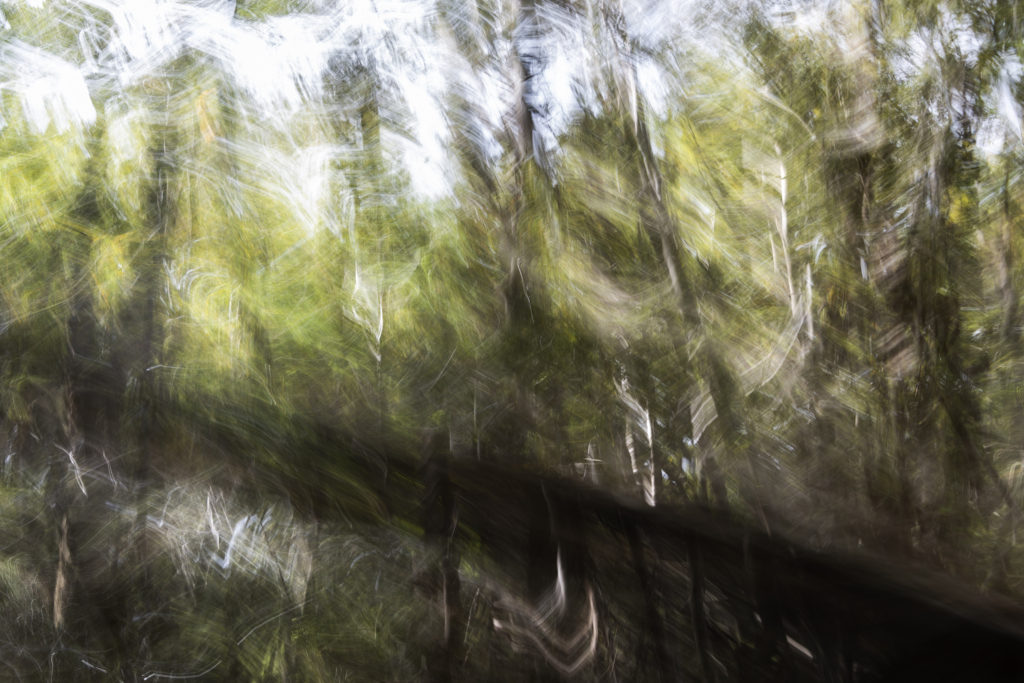
 Christian Formoso (Punta Arenas, 1971) is a Chilean poet. Among his verse collections are: Puerto de hambre (2005), El cementerio más hermoso de Chile (2008), bellezamericana (2014), and WWM —Walt Whitman Mall— (2020). Some of his poems have been translated to English, French, German and Greek and have appeared in anthologies, in Chile and abroad. Among other distinctions, he was awarded the National Council Prize for the Best Book Published in Chile for El cementerio más hermoso de Chile in 2009 and the Pablo Neruda Prize of the Pablo Neruda Foundation in 2010. He teaches Latin American Literature at Universidad de Magallanes and holds an MFA and a PhD in Hispanic Literature and Languages from Stony Brook University.
Christian Formoso (Punta Arenas, 1971) is a Chilean poet. Among his verse collections are: Puerto de hambre (2005), El cementerio más hermoso de Chile (2008), bellezamericana (2014), and WWM —Walt Whitman Mall— (2020). Some of his poems have been translated to English, French, German and Greek and have appeared in anthologies, in Chile and abroad. Among other distinctions, he was awarded the National Council Prize for the Best Book Published in Chile for El cementerio más hermoso de Chile in 2009 and the Pablo Neruda Prize of the Pablo Neruda Foundation in 2010. He teaches Latin American Literature at Universidad de Magallanes and holds an MFA and a PhD in Hispanic Literature and Languages from Stony Brook University.
 Terry Hermsen, Ohio Poet of the Year (2009), has taught in the Writers in the Schools program for the Ohio Arts Council from 1979–2003, visiting schools, prisons, senior centers, and national parks. He now teaches Creative Writing and Environmental Literature at Otterbein University and holds an MFA in Poetry from Goddard College and a PhD from Ohio State in Art Education. His books of poetry include A House for Last Year’s Summer, 36 Spokes: The Bicycle Poems, Child Aloft in Ohio Theatre, The River’s Daughter and A House for Last Year’s Summer.
Terry Hermsen, Ohio Poet of the Year (2009), has taught in the Writers in the Schools program for the Ohio Arts Council from 1979–2003, visiting schools, prisons, senior centers, and national parks. He now teaches Creative Writing and Environmental Literature at Otterbein University and holds an MFA in Poetry from Goddard College and a PhD from Ohio State in Art Education. His books of poetry include A House for Last Year’s Summer, 36 Spokes: The Bicycle Poems, Child Aloft in Ohio Theatre, The River’s Daughter and A House for Last Year’s Summer.
 Sydney Tammarine’s essays have appeared in Ploughshares, The Missing Slate, Pithead Chapel, Gravel, Cleaver, and others. Along with Terry Hermsen, she is the co-translator of Christian Formoso’s poetry collection, The Most Beautiful Cemetery in Chile. She holds an MFA in Creative Writing from Hollins University, edits creative nonfiction and flash for Cleaver Magazine, and teaches writing at Virginia Military Institute.
Sydney Tammarine’s essays have appeared in Ploughshares, The Missing Slate, Pithead Chapel, Gravel, Cleaver, and others. Along with Terry Hermsen, she is the co-translator of Christian Formoso’s poetry collection, The Most Beautiful Cemetery in Chile. She holds an MFA in Creative Writing from Hollins University, edits creative nonfiction and flash for Cleaver Magazine, and teaches writing at Virginia Military Institute.
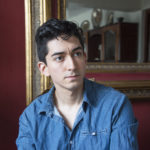 Michael Angelo Yáñez is a Chilean photographer who was born in Punta Arenas in 1992. His line of work is based on the culture and cosmovision of the original people of the southern zone, the vast territory of Patagonia, and the constant incognita of the Chilean identity. His work has been exhibited at the Centro Cultural La Moneda, the Centro Nacional de Arte Contemporáneo Cerrillos, and the Museo de Arte Moderno de Chiloé.
Michael Angelo Yáñez is a Chilean photographer who was born in Punta Arenas in 1992. His line of work is based on the culture and cosmovision of the original people of the southern zone, the vast territory of Patagonia, and the constant incognita of the Chilean identity. His work has been exhibited at the Centro Cultural La Moneda, the Centro Nacional de Arte Contemporáneo Cerrillos, and the Museo de Arte Moderno de Chiloé.
“film room 208, avenue of the poet rilke” will be featured in LIT #33, forthcoming in 2021.
